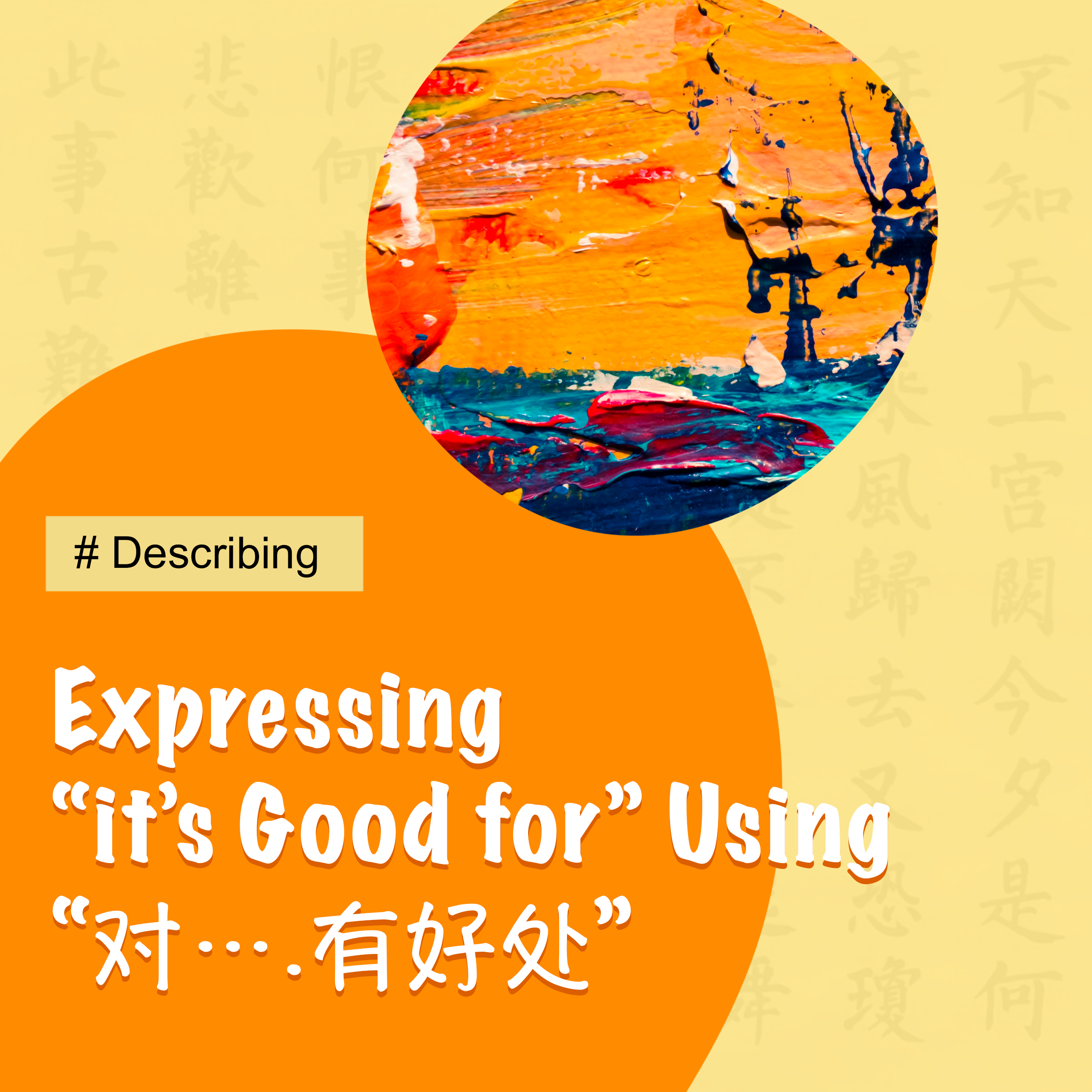Expressing “it’s Good for“ Using “对….有好处”
We've already learned "对...好/不好". Actually, we can also use “对duì….有好处 yǒu hǎochù” to express “It’s good for...”.
对duì + Phrase + 有好处yǒu hǎochù
Zuò shénme duì jiànkāng yǒu hǎochù?
做什么对健康有好处?(interrogative)
What are some good things to do for your health?
Yùndòng duì jiànkāng yǒu hǎochù.
运动对健康有好处。(affirmative)
Exercise is good for your health.
Hē tài duō jiǔ duì jiànkāng méi hǎochù.
喝太多酒对健康没好处。(negative)
Drinking too much alcohol is not good for your health.
____________________________________________
This grammar can replace nouns. e.g. 对duì…有帮助yǒu bāngzhù / 对duì….有害yǒuhài / 对duì….有益yǒuyì.
Tīng zhōngwén bōkè duì xuéxí zhōngwén yǒu bāngzhù.
听中文播客对学习中文有帮助。
Listening to Chinese podcasts is helpful for learning Chinese.
Chōu yān duì shēntǐ yǒuhài.
抽烟对身体有害。
Smoking is harmful to the body.
Xuéhǎo yīngwén duì nǐ de gōngzuò yǒuyì.
学好英文对你的工作有益。
Learning English well is beneficial for your job.
Chīsù duì huánjìng yǒuyì.
吃素对环境有益。
Being vegetarian is good for the environment.


